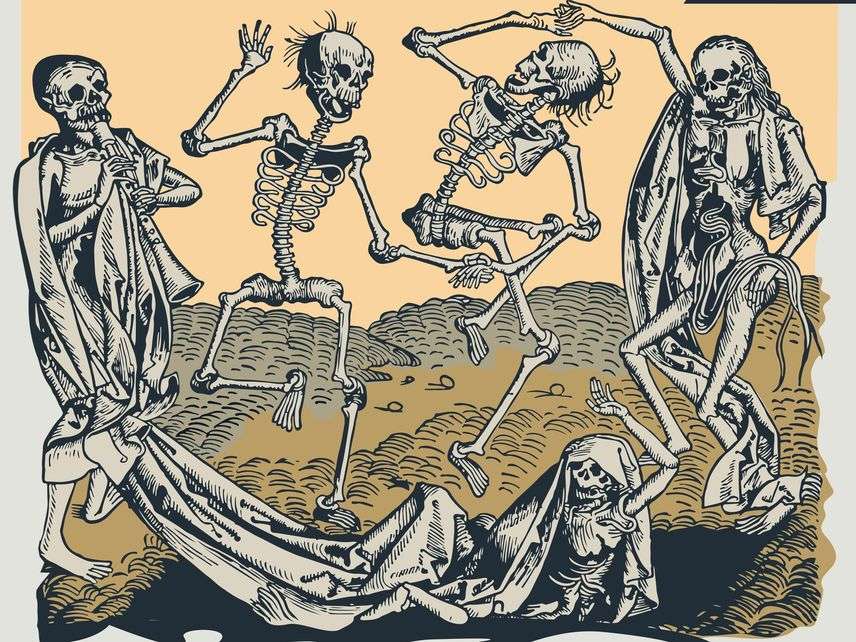Just Stop With the Climate-Change Disease Scaremongering, OK?
No, global warming will not spark a black death pandemic that kills millions

The Black Death could make comeback as the climate warms, asserts Oxford professor of global history and director of the Oxford Centre for Byzantine Research, Peter Frankopan. How? He suggests that melting permafrost in the Arctic could release long buried and frozen microbes to once again ravage the Earth's people.
According to Fox News, Frankopan warned, "If we go over that degree change, it's not about the Maldives being harder to visit on holiday or migration of people—it's about what happens when permafrost unfreezes and the release of biological agents that have been buried for millennia."
In support of his assertions, Frankopen pointed to the 2016 case in Siberia in which contact with a thawed reindeer carcass frozen 75 years earlier is thought to have sparked an anthrax outbreak that sickened several people and killed a 12-year-old boy.
Chief amongst the potential diseases brandished by Frankopen is the plague, which he asserted was spread in the Middle Ages largely due to a rise in global temperatures.
"For example, in the 1340s, a 1.5-degree movement of heating of the earth's atmosphere—probably because of solar flares or volcanic activity—changes the cycle of Yersinia pestis bacterium," he explained. "That one and a half degree difference allowed a small microbe to develop into the Black Death."
According to Frankopan, such a possibility should be taken more seriously than a rise in sea levels or droughts, not least because the Black Death wiped out between 75 and 200 million people in Europe in the 14th Century. "These are the things we should be hugely worried about," he said.
So how worried should you be about climate change induced pandemics of the Black Death? Certainly not hugely.
Recall that folks in the Middle Ages did not have access to antibiotics or vaccines. We do. For example, a recent report in Emerging Infectious Diseases notes that five cases of culture-confirmed human plague in Uganda were treated successfully with the oral antibiotic ciprofloxacin, including one case of pneumonic plague. In addition, researchers are well on the way toward developing effective new vaccines against Yersinia pestis. Last year, the U.S. Food and Drug Administration granted orphan drug status to one such plague vaccine.
As I have earlier explained:
It is true that at the margin higher average temperatures may help some diseases and their vectors to spread a bit, but with regard to controlling infectious diseases we've got much bigger problems than that. The fact is we already know how to control diseases no matter what the climate is—better vector control and the development of effective vaccines. Focusing on anything else is just another exaggerated environmentalist scare story.
By not taking modern science and medicine into account, Professor Frankopen and other similar alarmists are engaged in plain old scaremongering.


Show Comments (75)